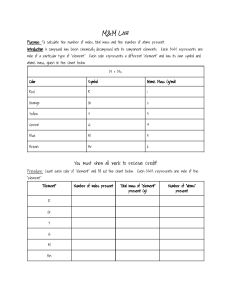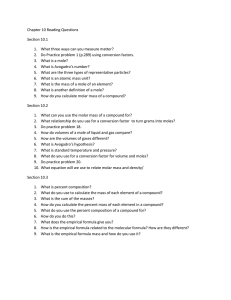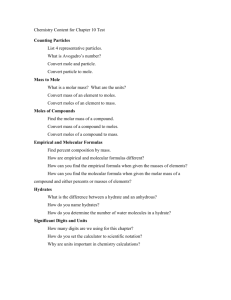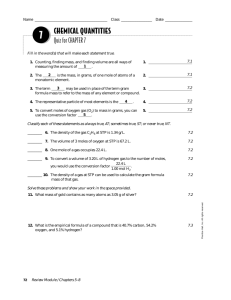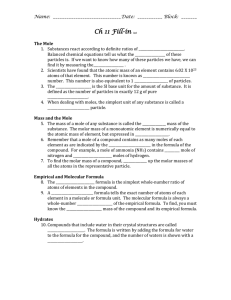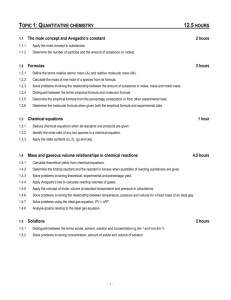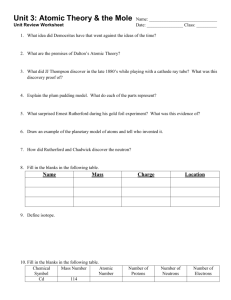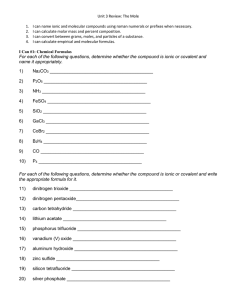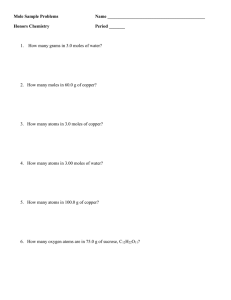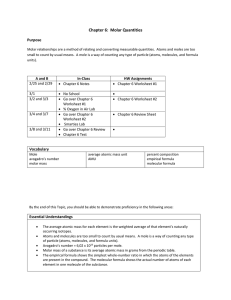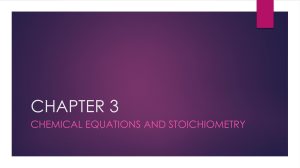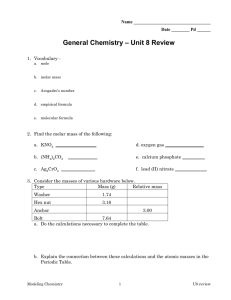Chapter 8 – Chemical Composition Name Hour State Standards
advertisement
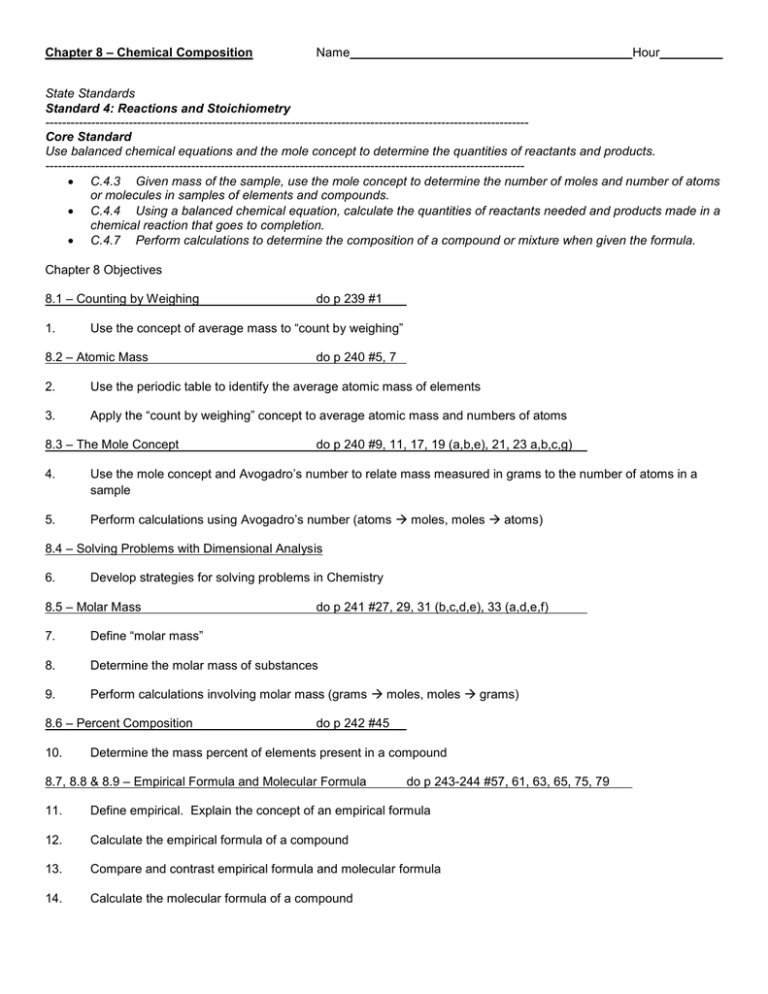
Chapter 8 – Chemical Composition Name Hour State Standards Standard 4: Reactions and Stoichiometry -------------------------------------------------------------------------------------------------------------------Core Standard Use balanced chemical equations and the mole concept to determine the quantities of reactants and products. ------------------------------------------------------------------------------------------------------------------ C.4.3 Given mass of the sample, use the mole concept to determine the number of moles and number of atoms or molecules in samples of elements and compounds. C.4.4 Using a balanced chemical equation, calculate the quantities of reactants needed and products made in a chemical reaction that goes to completion. C.4.7 Perform calculations to determine the composition of a compound or mixture when given the formula. Chapter 8 Objectives 8.1 – Counting by Weighing 1. do p 239 #1 Use the concept of average mass to “count by weighing” 8.2 – Atomic Mass do p 240 #5, 7 2. Use the periodic table to identify the average atomic mass of elements 3. Apply the “count by weighing” concept to average atomic mass and numbers of atoms 8.3 – The Mole Concept do p 240 #9, 11, 17, 19 (a,b,e), 21, 23 a,b,c,g) 4. Use the mole concept and Avogadro’s number to relate mass measured in grams to the number of atoms in a sample 5. Perform calculations using Avogadro’s number (atoms moles, moles atoms) 8.4 – Solving Problems with Dimensional Analysis 6. Develop strategies for solving problems in Chemistry 8.5 – Molar Mass do p 241 #27, 29, 31 (b,c,d,e), 33 (a,d,e,f) 7. Define “molar mass” 8. Determine the molar mass of substances 9. Perform calculations involving molar mass (grams moles, moles grams) 8.6 – Percent Composition 10. do p 242 #45 Determine the mass percent of elements present in a compound 8.7, 8.8 & 8.9 – Empirical Formula and Molecular Formula do p 243-244 #57, 61, 63, 65, 75, 79 11. Define empirical. Explain the concept of an empirical formula 12. Calculate the empirical formula of a compound 13. Compare and contrast empirical formula and molecular formula 14. Calculate the molecular formula of a compound
